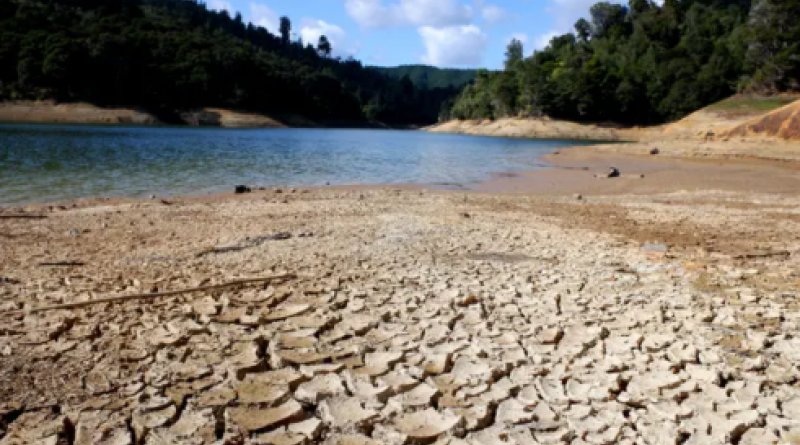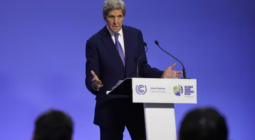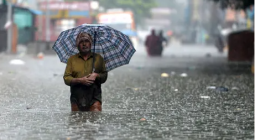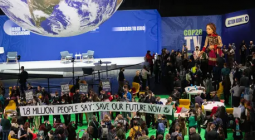Op - Yes, Cop26 could have gone further – but it still brought us closer to a 1.5C world

The window to achieve that goal is vanishingly small, but it is there. Now we must seize this one last chance.
Like many others, I would like to have seen a stronger outcome from Cop26. But we shouldn’t lose sight of the fact that much was achieved – and the final outcome does get us much closer to where we need to be than where we were a few weeks ago.
For the first time countries agreed to take action on fossil fuels. Yes, it could have gone further – but let’s not forget that never before has there been a single word uttered on fossil fuels in any Cop agreement. So the agreed text is significant.
We also achieved consensus on a number of unresolved issues from Paris, like the complex matter of how countries can work together to reduce emissions. It might not seem like much, but the fact that countries have agreed to a set of rules that will ensure genuine emissions reductions the world over is really important.
In short, Cop has, just about, brought us closer to being on track for a 1.5C world. Estimates range from 1.8C to 2.4C. A year ago we were looking at north of 3.5C.
The window of opportunity to achieve that is vanishingly small, but it’s still there. The critical thing is this: whether we seize the remaining chance we have comes down to the political will to drive domestic action at home.
It was very encouraging to see the world’s two biggest sources of greenhouse gases – China and the US – signalling their intention to work together again to drive down emissions.
And right now President Biden is pushing a domestic spending plan that includes an eye-watering US$550bn for climate action.
That is the level of commitment we need to see in developed countries around the world. Of course, not everyone has the spending might of the United States, but we must all do everything within our means to turn ambition into action.
Here in Aotearoa, we intend to lead by example, and show the world what meaningful, ambitious and lasting climate action looks like.
Prior to Cop26, the prime minister, Jacinda Ardern, and I announced an updated nationally determined contributions target to halve the emissions New Zealand is responsible for by 2030. Achieving that target is going to take a great many changes, large and small, that together over time will add up to a better, cleaner future.
Those changes will be felt right across the political and economic spectrum – in energy, transport, waste, agriculture, construction and financial services. That’s why we are taking an “all-of-government” approach to climate action that means, in my view, every minister is now a climate minister.
And there is no part of our country, no business, no community, no family, whose future will not be shaped in some way by the decisions we take in the coming decade.
So it’s critical we ensure a just transition that doesn’t leave anyone behind. We will have only succeeded in our mission if we move to our low-carbon future in a way that also helps unwind existing patterns of inequality.
Our next steps in tackling climate change in Aotearoa New Zealand will build on the achievements we have already registered. In recent years, we have passed legislation to require all listed companies and large financial institutions to report on their climate related risks.
We’ve upgraded schools, hospitals, universities and businesses to run on clean energy instead of dirty coal. And we’ve made it easier for families to purchase low-emission vehicles.
But is that enough? Not even close. We have a long way to go, but we know where we have to get to. The same goes for countries around the world. Following the agreements reached at Cop26 and the frameworks put in place, there’s no more room for excuses. It is time to act.
As I said in New Zealand’s national statement in Glasgow, since collectively acknowledging the need to start reducing emissions 30 years ago, the world has succeeded only in doubling the amount of carbon dioxide we’ve put into the atmosphere since the start of the Industrial Revolution.
And in all that time, our political leaders knew what was unfolding – the science has been clear for a long time. They had a chance to stop it, but they didn’t.
And so, it falls to us – right here, right now.
-
James Shaw is New Zealand’s minister of climate change
20 September 2021
The Guardian




